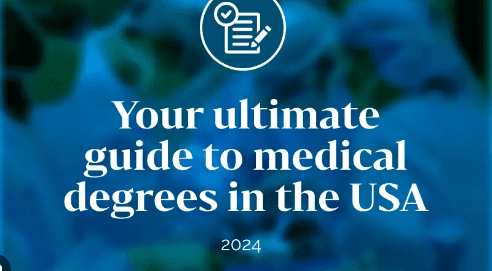To obtain a U.S. student visa, specifically the F-1 visa, there are no specific medical requirements mandated by the visa process itself. However, there are several health-related considerations and steps that international students should be aware of: Immunization Records: Many U.S. colleges and universities require students to provide proof of certain vaccinations before enrolling. These typically include vaccines for measles, mumps, rubella (MMR), tetanus, diphtheria, pertussis (Tdap), hepatitis B, and sometimes meningitis, tuberculosis (TB) screening, and varicella (chickenpox). Health Insurance: While not a requirement for the visa, many U.S. institutions require international students to have health insurance. Some schools provide their own health
insurance plans, and others require proof of insurance that meets their standards. Medical Examination: A general medical examination is not required for the F-1 visa application. However, students may need to undergo health screenings or medical examinations as part of the admissions process to their chosen educational institution. Tuberculosis Screening: Some schools require international students to undergo TB screening upon arrival in the U.S., even if they have been screened in their home country. Mental Health Support: While not a visa requirement, understanding the availability of mental health support and services at the chosen institution is important for international students. Special Medical Conditions: Students with
chronic medical conditions should bring detailed medical records and sufficient medication to last until they can establish care with a healthcare provider in the U.S. Process Overview Acceptance to a SEVP-Approved School: Obtain acceptance from a Student and Exchange Visitor Program (SEVP)-approved school and receive a Form I-20. Pay the SEVIS Fee: Pay the SEVIS (Student and Exchange Visitor Information System) fee before applying for a visa. Complete the DS-160 Form: Fill out the Online Nonimmigrant Visa Application form (DS-
160). Schedule and Attend Visa Interview: Schedule a visa interview at a U.S. Embassy or Consulate. During the interview, you may be asked about your health and medical history, but there are no specific medical documents required. Prepare Documentation: Prepare and bring necessary documentation to the visa interview, including the Form I-20, passport, visa application confirmation, SEVIS fee receipt, and financial evidence showing you have sufficient funds to cover your expenses while in the U.S. For specific medical requirements related to the institution you will attend, it is essential to check directly with the school’s admissions or international student office. They can provide detailed information on immunizations, health insurance, and any other health-related protocols you need to follow.
Immunization requirements for international students seeking a U.S. student visa (F-1 visa) are not directly imposed by the visa application process but by the educational institutions themselves. Most U.S. colleges and universities have specific immunization requirements that must be met before enrollment. Here is a general outline of what you might expect regarding immunization records: Common Immunization Requirements Measles, Mumps, and Rubella (MMR): Two doses typically required. Tetanus, Diphtheria, and Pertussis (Tdap): One dose of Tdap, followed by a Td booster every 10 years. Hepatitis B: A series of three doses. Varicella (Chickenpox): Two doses, or proof of immunity (a history of having had the disease). Meningococcal Vaccine: Often required for students living in dormitories, with one dose of MCV4
administered after the age of 16. Tuberculosis (TB) Screening: Some schools require a TB skin test or blood test, especially for students coming from countries with high TB prevalence. Steps to Meet Immunization Requirements Check School-Specific Requirements: Review the health or admissions section of your college or university’s website to understand their specific immunization requirements. Gather Immunization Records: Obtain your immunization records from your healthcare provider in your home country. Make sure the records are translated into English if necessary. Get Missing Vaccinations: If you are missing any required vaccinations, schedule appointments to receive these immunizations before traveling to the U.S. Complete
Health Forms: Fill out any health or immunization forms required by your school. These forms often need to be completed by a healthcare provider and submitted before you arrive on campus. Bring Documentation: Carry your immunization records and any completed health forms with you to the U.S. Some schools may require you to present these documents upon arrival or during orientation. Additional Considerations Health Insurance: Verify whether your school requires health insurance and if they offer a student health plan. It’s often mandatory and helps cover any medical expenses you might incur, including vaccinations. Medical Examination: While not typically required for the visa itself, some schools might ask for a general health examination. Check if your school has such a requirement. Process Overview Acceptance and I-20 Form:
Obtain acceptance from a SEVP-approved school and receive the Form I-20. SEVIS Fee: Pay the SEVIS fee before applying for your visa. DS-160 Form: Complete the Online Nonimmigrant Visa Application (DS-160). Visa Interview: Schedule and attend a visa interview at a U.S. Embassy or Consulate. Bring all necessary documentation. Prepare Immunization Records: Ensure you have all required immunizations and bring the documentation with you to the U.S. By following these steps and meeting the immunization requirements set by your chosen educational institution, you will be better prepared for your studies in the U.S.
